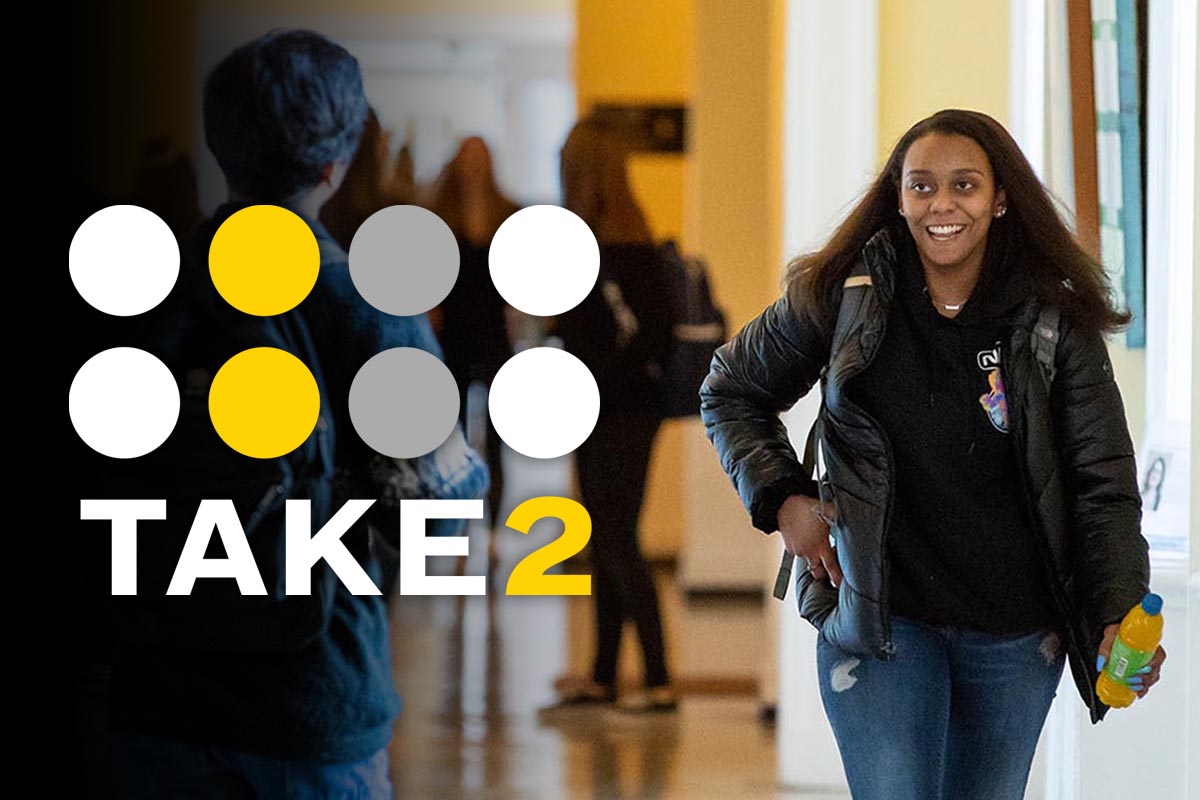Randolph’s new major explores fast-growing film and video world
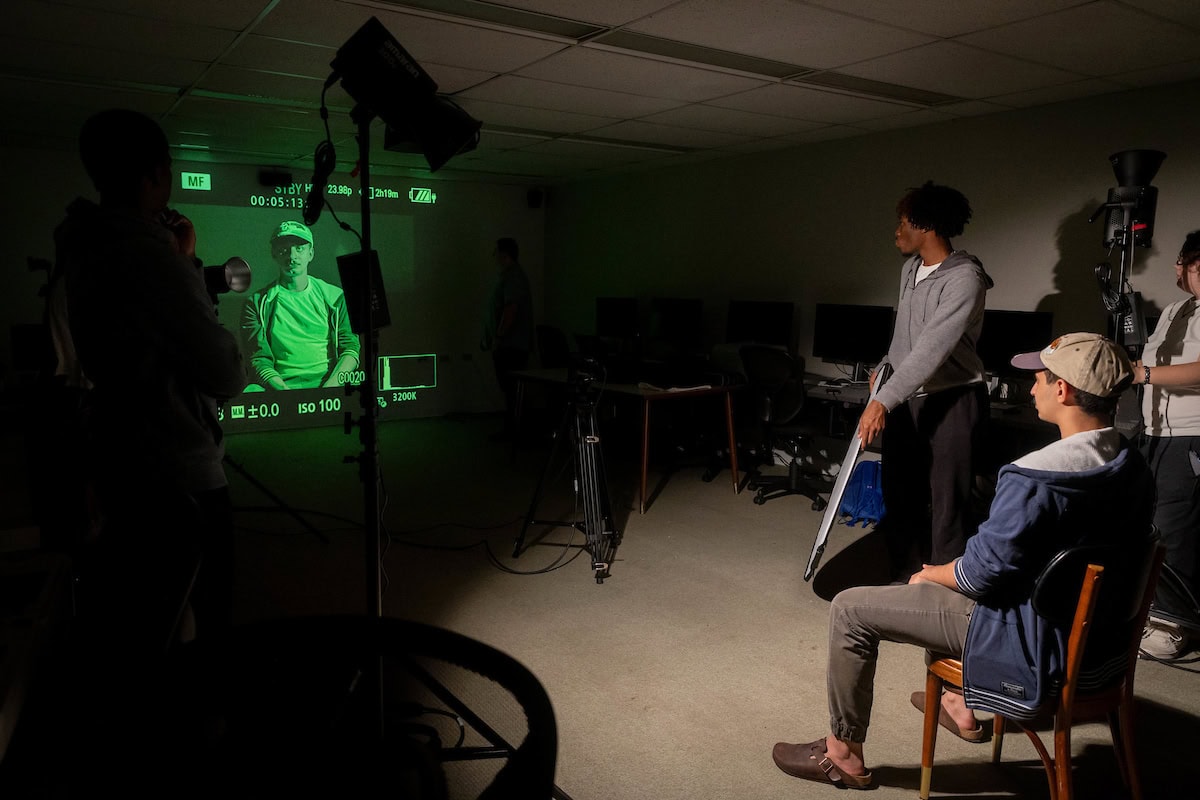
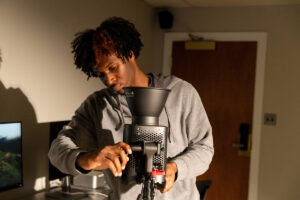
Youssef Shalaby ’26 sits in the center of a dimly lit room staring at his own image, which is magnified on a large screen in front of him. Nearby, his classmates adjust equipment and position lights during a video production course this fall.
“We were composing some shots using lighting techniques and equipment we had learned earlier,” Shalaby said. “A lot of it was experimenting, or ‘auditioning’ as we call it, with what worked and what didn’t.”
The course was the first to be offered in Randolph’s new film and video major.
“At a lot of bigger film schools, students don’t touch the equipment until they’re in their junior or senior years,” said Dustin Abernathy, the students’ film and video professor. “That is what’s so special about what a small program can do. At Randolph, our students are using equipment on day two of classes. We spend several weeks in production workshops, and then they build their own projects.”
The major is designed to prepare students to understand and harness the power of visual media to send messages, build communities, educate, and advocate for change.
“We’re training students to make the messages themselves. There’s such a push these days for a wider variety of points of view in stories, whether it’s Hollywood or anywhere else,” said Jennifer Gauthier, professor of media and culture, who proposed the major. “The only way you’re going to get that is to have a wider variety of people behind the camera.”
Abernathy is one of those storytellers. He studied mass communication with a focus on film at the University of North Carolina Asheville and entered the industry after graduation.
“Filmmaking is one of those industries that can be difficult to get a foot in the door to score your first job,” he said.
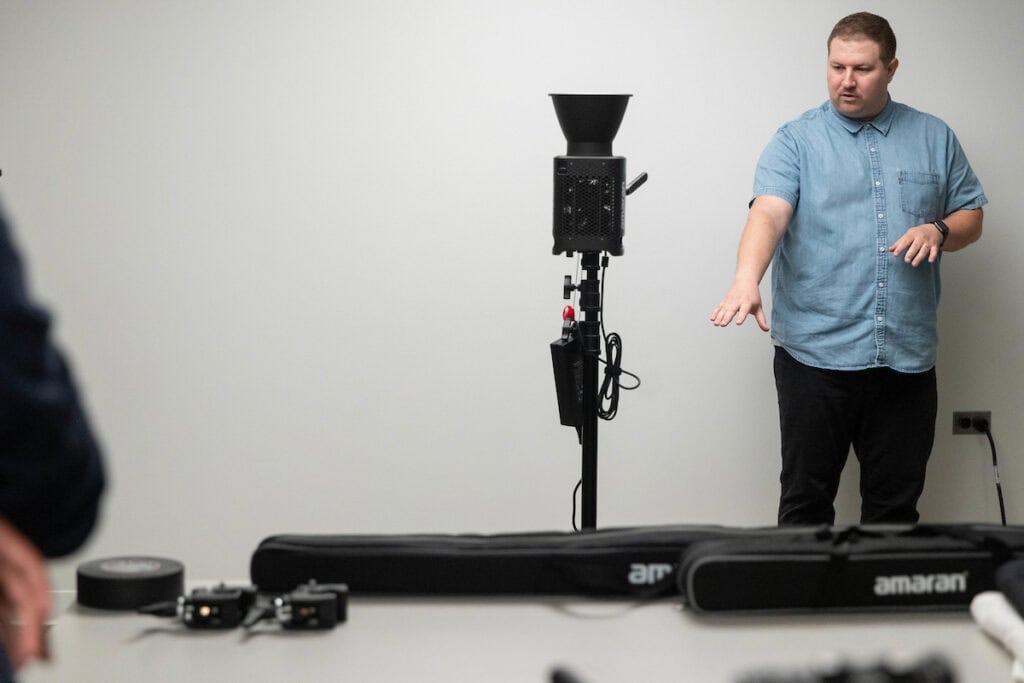
Abernathy worked on a variety of projects, including music videos and short films, as a director, editor, cinematographer, and colorist. He enjoyed it all but soon found himself back at his alma mater, working as equipment and editing lab manager for the mass communication and new media departments.
“I discovered my true passion for teaching and helping others find their path into the industry,” said Abernathy, who eventually earned a Master of Fine Arts in filmmaking from the University of North Carolina Wilmington.
He’s continued to work on short films over the years and is excited to show students the diverse ways they can explore careers in media production.
“Every Fortune 500 company in America right now has a production arm,” Abernathy said. “Whether they’re paying an outside company to do it or they have an in-house team of one to five people doing it themselves, these positions are available. It’s not just content creation or narrative production.
“Media content creators and videographers can be just about anywhere in the world,” he added. “Getting that first job in the industry could be as simple as reaching out to a local company and saying, ‘Hey, let me run your social media page and do all the video content for a month and see how that goes.’”
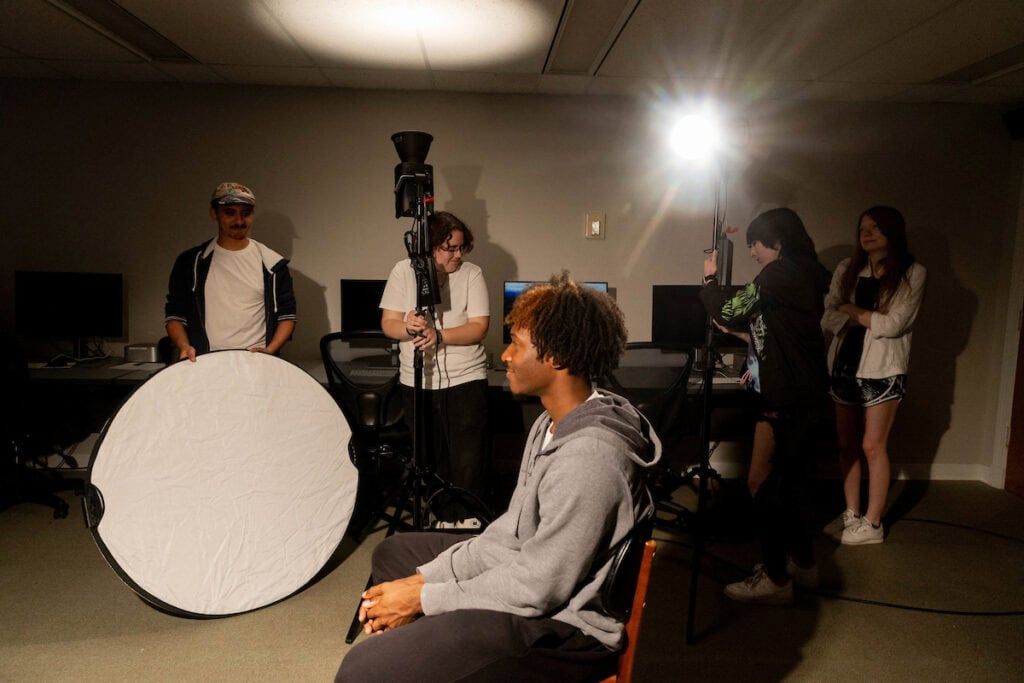
Randolph’s major includes coursework in video production, cinematography, editing, directing, and documentary research. Students are also required to take film history and theory classes, with topics ranging from race and Hollywood to global media and society to documentary history and theory.
“The skills students acquire translate across industries—including jobs that didn’t even exist 10 or 20 years ago,” Gauthier explained. “It’s rooted in media production, like shooting and editing video, but also involves producing, directing, managing logistics, and utilizing available resources. These tools are essential in today’s world.”
She also emphasized how filmmaking connects to the College’s broader educational goals.
“This brings together the skills we aim to develop in a liberal arts education: critical thinking, communication, and problem-solving,” Gauthier said. “These are exactly the qualities employers are seeking.”
Shalaby, for instance, is majoring in global studies and sees firsthand how video production can enhance understanding of complex issues.
“It’s easy to approach things from an abstract, academic standpoint,” he said. “Video can tell the stories in ways words alone may not capture. It’s an invaluable educational tool.”


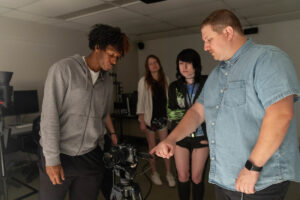
This story appears in the Fall 2024 edition of Randolph College’s magazine, Vita Abundantior.
Tags: Dustin Abernathy, film and video, media and culture, Vita Fall 2024